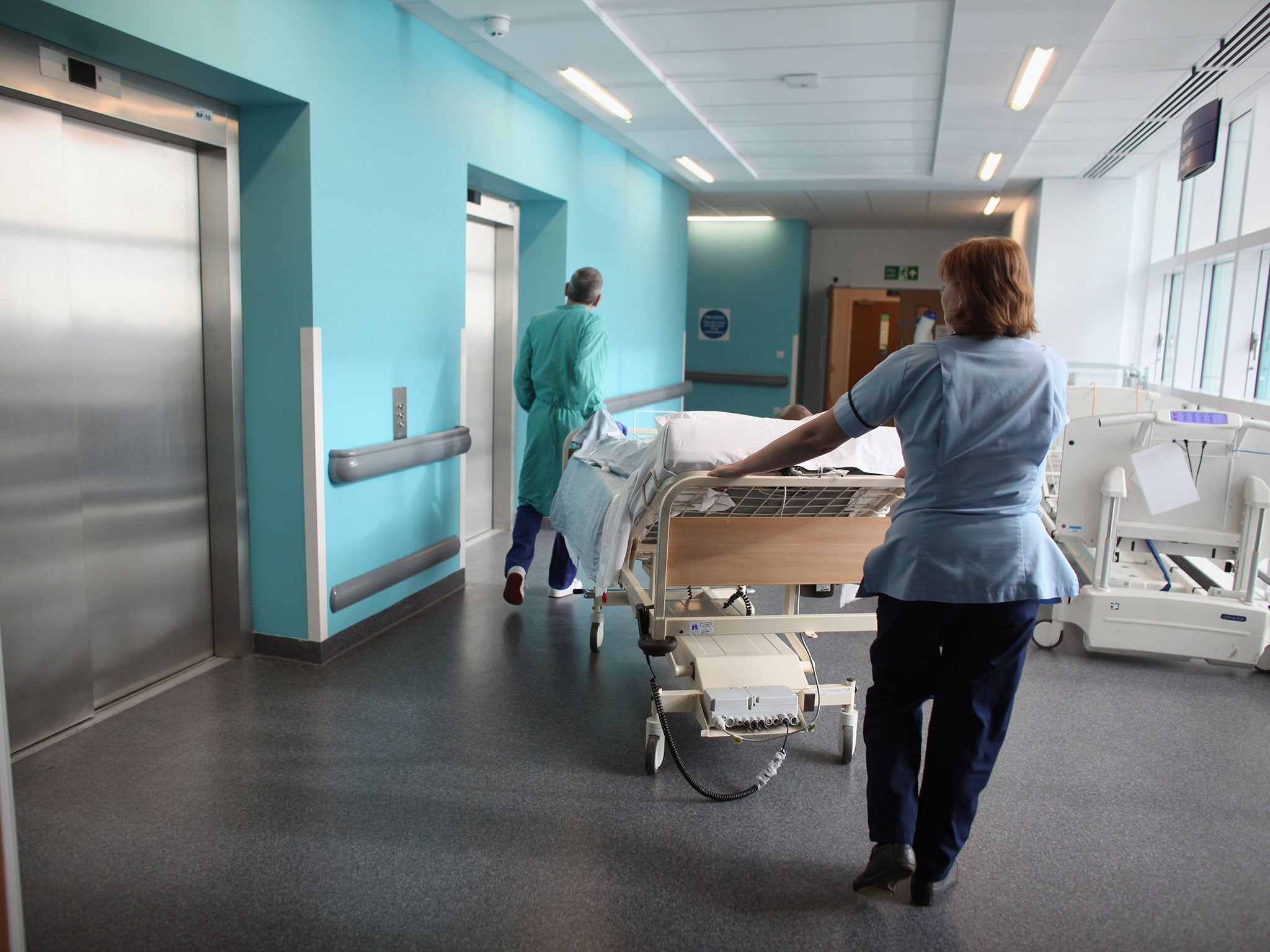NHS 'wake-up call': Six out of seven young doctors at risk of burning out, survey finds
Trainee anaesthetists unable to eat or drink during shift and stressed out by pressures on NHS

Your support helps us to tell the story
From reproductive rights to climate change to Big Tech, The Independent is on the ground when the story is developing. Whether it's investigating the financials of Elon Musk's pro-Trump PAC or producing our latest documentary, 'The A Word', which shines a light on the American women fighting for reproductive rights, we know how important it is to parse out the facts from the messaging.
At such a critical moment in US history, we need reporters on the ground. Your donation allows us to keep sending journalists to speak to both sides of the story.
The Independent is trusted by Americans across the entire political spectrum. And unlike many other quality news outlets, we choose not to lock Americans out of our reporting and analysis with paywalls. We believe quality journalism should be available to everyone, paid for by those who can afford it.
Your support makes all the difference.Six out of seven young hospital doctors are at risk of burning out and many are going without eating or drinking during their shift because pressures on the NHS are putting more strain on working conditions, a study has found.
More than 2,300 trainee anaesthetists responded to a survey about their working lives carried out by the Royal College of Anaesthetists (RCoA), which described some of the findings as “shocking”.
Two thirds of respondents said their physical or mental health were affected by the pressures at work, 62 per cent said they had gone through a shift in the last month without a meal, 75 per cent said they were working without hydrating themselves and 28 per cent said they had stayed at work more than two hours after their shift to ensure someone was properly taking over and it was safe for them to go.
Speaking to The Independent, President of the college Dr Liam Brennan said: “The results showed that 85 per cent of trainees are at risk of burning out. That's shocking, I didn't expect it to be that high.
“We are not talking about people who have done this for years. These are people who are at the early stage of their careers and that makes me really anxious for the future.
“The comments are clear that this is about the system these young doctors have to live and work with. It should be a real wake-up call for the whole care system,” he said.
The study was aimed to assess the morale, levels of happiness and work satisfaction of trainees inside hospitals.
Within 48 hours of being made public, the survey attracted more than 1,000 responses, “showing the strength of the feelings and level of concerns”, Dr Brennan said.
He told The Independent trainee anaesthetics were not the only ones to have to work under such conditions but other specialities such as emergency medicine were experiencing similar issues.
Other causes of pressure for trainee anaesthetists are recruitment and manpower problems, which are acute in some parts of the country such as Yorkshire and the Humber and northern Scotland.
This echoes other studies, which have highlighted the fatigue and work dissatisfaction of junior doctors.
The National Training Survey findings show one in four doctors below the level of consultant say their workload leaves them sleep-deprived and 43 per cent described their schedule as heavy or very heavy.
Last year, the Royal College of Physicians also found that four in five junior doctors regularly experience excessive stress because of their job, which sometimes leads to serious impact on their mental health.
Going without eating or drinking was also commonly experienced by young doctors, the study found.
Commenting on the findings, Dr Brennan said acknowledging there is a problem, ensuring employers looked after the welfare of trainees and facilitating a dialogue between young doctors and senior management could improve the situation.
Dr Brennan said in many hospitals there were no facilities for staff to rest or sleep after a night shift for example and that employers should make sure they provide decent working conditions.
“There was a trainee in my own practice area driving home after a night shift, who died in a crash. In many places, there is nowhere for them to sleep for an hour if they feel exhausted after a night shift before travelling home. It’s things like that, which could improve the welfare of young doctors and give them more security,” he said.
In the long term, Dr Brennan said extending rotation periods of trainees in hospitals would allow young doctors to build stronger relationships with the medical teams and “not be that faceless person who comes for a couple of months and leaves”.
Join our commenting forum
Join thought-provoking conversations, follow other Independent readers and see their replies
Comments